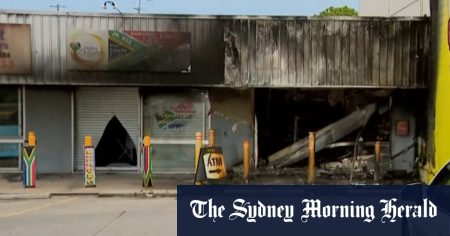A landmark legal battle over historical child sexual abuse has reached a significant juncture, with the Western Bulldogs Football Club successfully appealing a $5.9 million payout awarded to survivor Adam Kneale. This initial sum, the largest ever awarded to an abuse survivor in Australia, stemmed from the abuse Kneale suffered as a child at the hands of club volunteer Graeme Hobbs. The Court of Appeal, while acknowledging the severity of the abuse and the club’s failings, reduced the award to $2.6 million, a decision that nonetheless represents a substantial financial penalty for the club and an affirmation of the enduring impact of childhood trauma.
The case revolves around the abuse Kneale endured between 1984 and 1990 while involved with the then-Footscray Football Club. Graeme Hobbs, the perpetrator, held a volunteer position at the club, granting him access to vulnerable children like Kneale. The initial jury verdict, resulting in the $5.9 million award, reflected the profound and lasting impact of Hobbs’s actions on Kneale’s life. This verdict was hailed as a watershed moment for survivors of sexual abuse, signaling a potential shift in the recognition and compensation for such trauma.
However, the Western Bulldogs challenged the verdict, arguing that the awarded sum was excessive. Their appeal was partially successful, leading to the significant reduction in the payout. Despite this reduction, Kneale’s legal team emphasized the victory inherent in the Court of Appeal’s affirmation of the club’s culpability. The court upheld the fundamental finding that the Bulldogs had failed in their duty of care towards Kneale, allowing a known predator to operate within their ranks and prey on children. This affirmation holds significant weight, underscoring the responsibility of institutions to protect children from abuse and the consequences they face when they fail to do so.
The case highlights the complex and often protracted legal battles faced by survivors of historical abuse. While the reduced payout might be viewed as a setback, it remains a considerable sum and represents a significant legal victory in holding the Western Bulldogs accountable for their negligence. The case also underscores the ongoing debate surrounding appropriate compensation for victims of sexual abuse. Determining the monetary value of a lifetime of trauma presents a profound challenge, and this case highlights the difficulty in quantifying the suffering endured by survivors.
Beyond the financial implications, the case illuminates the devastating impact of childhood sexual abuse. Kneale’s legal battle, spanning two years and facing staunch opposition from the Western Bulldogs, showcases the courage and resilience of survivors who seek justice and recognition for the harm they have suffered. It also brings to the forefront the ongoing struggle of survivors to have their voices heard and their experiences validated, often facing institutional resistance and denial.
In conclusion, the Western Bulldogs case represents a complex and significant moment in the ongoing struggle for justice for survivors of child sexual abuse. While the reduction in the payout might be seen as a partial victory for the club, the court’s affirmation of their negligence and the substantial sum they are still required to pay underscores the gravity of their failings. The case serves as a stark reminder of the importance of institutional accountability in protecting children and the long-lasting impact of abuse on survivors. Furthermore, it highlights the challenges associated with quantifying trauma and the ongoing need for a system that adequately compensates survivors for the harm they have endured. While the legal battle may be over, the broader conversation about institutional responsibility and survivor support continues.










